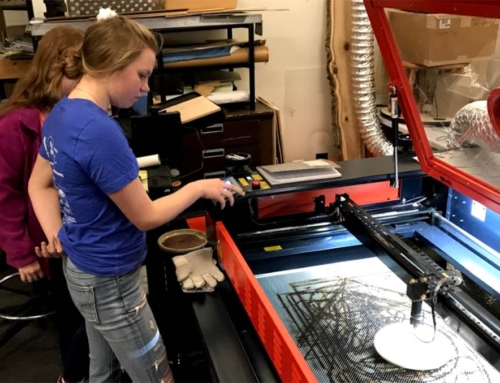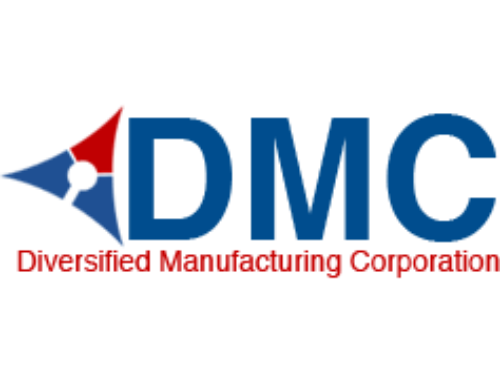
Scalerator encourages companies to be more ambitious with their growth targets, and walks companies through the steps necessary to turn that desire for growth into reality. Through three years of offering the program, Scale Up Milwaukee has learned that a need exists for similar services and lessons among both larger and smaller companies.
“A $5 million business is not a smaller version of a $30 million business,” says Elmer Moore, project team leader for Scale Up Milwaukee. “They are two different animals—two different entities that require different approaches.”
For example, once a company reaches $1 million in revenues (the lower threshold for Scalerator participation), it might move from using a bookkeeper or part-time accountant to engaging the services of a full-time accountant or even a controller. Larger, more complicated organizations with revenues in the $20 million to $50 million range might need a chief financial officer with an accounting team to manage the more complex set of financial issues the company faces. Based on their size, companies face different sets of issues with regard to many types of concerns—not just financial, but also legal, regulatory, and compliance with labor and employee benefits laws, among others.
To help develop a pipeline of companies that qualify for Scalerator, Scale Up Milwaukee is introducing a growth training program (tentatively called “Scalerator Prep” until the official name is finalized) that will launch this fall in partnership with the Wisconsin Women’s Business Initiative Corporation (WWBIC) and the African American Chamber of Commerce of Wisconsin.
“WWBIC and the Chamber have a history of great work and access to access to the types of businesses that are ripe for growth,” says Moore. “This partnership will be extremely valuable in helping us to identify companies that are good candidates, and making Scalerator Prep an exceptional program.”
At the same time, Scale Up Milwaukee is also working to fill another critical gap for Milwaukee-area companies that are serious about growth: it is developing a program (tentatively deemed “Scalerator Plus”) for companies in the $20 million to $50 million range. Through three rounds of Scalerator, the organization has learned that companies with larger annual revenues still may need some help achieving the growth needed to make them more attractive targets for mergers and acquisitions.
Scalerator has received support from the Wisconsin Economic Development Corporation’s (WEDC’s) Targeted Industry Projects Grant Program. “This investment of public funds is without a doubt leading Milwaukee-area companies to be more ambitious and set goals to grow bigger, faster, with a clear idea of how to reach those goals,” says Moore. “This has an effect not only on the companies themselves, but on their customers, their supply chains, and the state’s economy as a whole.”
So what about the companies that fall into the gap between Scale Up Milwaukee’s programs—those with revenues between $10 million and $20 million? “We still work with them,” says Moore. “If one is a good fit for one of our growth training programs, we have to determine whether the business is more similar to smaller or larger companies, to determine which group to place them with.”

Attendees at Scale Up Milwaukee’s first membership meeting in June.
The 27 companies that participated in the first two Scalerator classes reported that they’ve created more than 200 jobs as a result of their participation, and increased their aggregate annual revenue from $65 million to $95 million. The program’s measurable impact will grow further as members of the third Scalerator class, which concluded in May 2016, report back with their results.
Part of the Scalerator curriculum involves helping companies identify “latent equity” that they can reinvest to fuel growth—for example, by acquiring credit or utilizing cash reserves. As a result, for Scalerator 3 alone, WEDC’s investment of $500,000 has led to reinvestment of $5 million as Scalerator companies pursue growth.
Thanks to support from WEDC and private donors, the program is offered at no cost to the companies, other than the time they devote to attending Scalerator courses and events, creating strategies and implementing them. In a move Moore calls “unprecedented,” Scalerator companies have voluntarily made donations to reinvest in the program after graduating, with participation by the vast majority of program graduates. “That’s how much value they feel they received from the program, and that’s how eager they are to see it sustained.”
Scale Up Milwaukee recently introduced a membership platform, by which companies and others—such as universities, nonprofits, investors and public sector representatives—can engage with Milwaukee’s growth-oriented programs, network and culture. More than 50 companies attended its first membership meeting in June.
The organization has received accolades from thought leadership organizations in the entrepreneurship world for assisting established companies, when most resources to help companies grow target startups. It has also generated much interest from local and national governments interested in replicating its results: Scale Up Milwaukee has received inquiries from a diverse list of places including Italy, Denmark, the United Kingdom and Brazil, as well as cities and states within the U.S.
“In its short history, Scalerator has been incredibly successful,” says Lee Swindall, WEDC vice president of sector strategy development. “We are extremely proud that this program, launched here in Wisconsin to meet the needs of an underserved group of businesses, has become a model for emulation, nationally and internationally.”












FOLLOW US